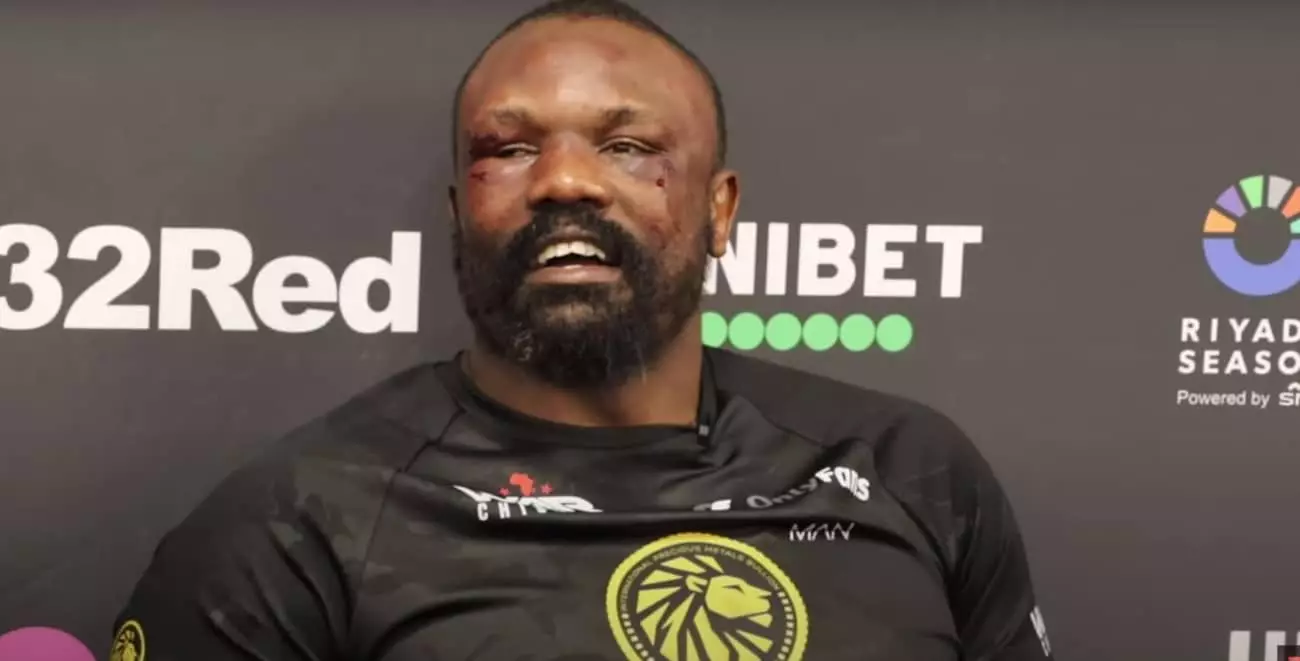Derek Chisora, a name synonymous with grit and resilience in the boxing world, has etched an indelible mark over his long-spanning career. Now on the cusp of his 50th fight, speculation swirls around a potential bout with IBF heavyweight champion Daniel Dubois—an encounter that evokes both admiration and concern. As a fan favorite, Chisora’s boxing style, marked by relentless tenacity and a fighting spirit, has garnered a loyal following. However, the question looms: should a fighter who has contested 49 bouts and is now 41 years old continue to challenge the burgeoning prowess of an athlete like Dubois?
While Chisora’s recent victory over Otto Wallin might suggest a final flourish, the harsh realities of age and the toll of years in the ring must not be ignored. The boxing landscape is fraught with stories of retired warriors who underestimated the risks associated with the sport’s physical demands. Chisora has bravely battled his way through triumphs and defeats, but the stakes have never been higher. Engaging in a fight against a young powerhouse like Dubois poses significant risks that extend beyond mere competition.
The Morality of Matchmaking
The prospect of Chisora meeting Dubois presents a complex moral conundrum for promoters and trainers alike. Don Charles, Chisora’s longtime trainer, is particularly vocal about his apprehensions concerning this match-up. While he acknowledges the potential for financial gains and a fitting send-off for Chisora, he remains deeply troubled by the health implications of such a fight. In his own words, Charles expresses a deep emotional connection to Chisora, revealing that he has trained him for the majority of his 49 fights: “I wouldn’t want to see it for health reasons, but in my other heart, Derek deserves a good send-off.”
These sentiments resonate with many fans who fear that a match against Dubois could potentially endanger Chisora’s well-being. This concern raises important questions about the responsibilities shared among promoters, trainers, and governing bodies. Boxing cannot simply be about profit; it must consider its participants’ health and safety in an environment where a single punch can alter a fighter’s life forever.
Financial Incentives Versus Fighter Welfare
The duality of ambition and caution casts a shadow over Chisora’s potential farewell fight. There’s no denying that a bout against Dubois could bring financial reward to Chisora, allowing him to exit the ring on a high—albeit uncertain—note. However, the underlying ethical implications of pitting a veteran like Chisora against a prime champion must be carefully examined. Is it worth the risk of compromising a combatant’s health for the allure of monetary gain? This dilemma isn’t unique to Chisora; it permeates the sport and challenges the morals that guide decision-making in the boxing community.
What’s often at stake is the lure of excitement—the prospect of witnessing a storied fighter’s last stand. But as the glitz and glamour of the boxing world often overshadow the athletes themselves, the reality emerges: fighters can’t afford to lose their futures in the pursuit of nostalgia. The mandates for safe fighting practices and the voices advocating for fighter welfare must come into sharper focus as we navigate such perilous match-ups.
A Call for Respectful Farewells
As the talk amplifies around Chisora potentially facing Dubois, the boxing community must advocate for more thoughtful matchmaking. Each fighter should be afforded a chance to create a lasting legacy—a legacy that celebrates their achievements without risking irreversible damage. Many supporters hope for a scenario where Chisora’s final professional bout is against a more suitable opponent who respects his history and ability—a match where he can display his skills without fear of devastating consequences.
On the other hand, promoting rising talents such as Dubois should also not come at the expense of the old guard’s safety. It is essential that the boxing world finds a balance between honoring its past heroes and paving the way for future generations. The weights in this equilibrium should lean toward health, dignity, and respect for all fighters who dedicate their lives to this merciless sport. The call to action is clear: champions, trainers, and fans alike must engage in a thoughtful dialogue about the pathways we create for our fighters, especially those on the verge of retirement.

